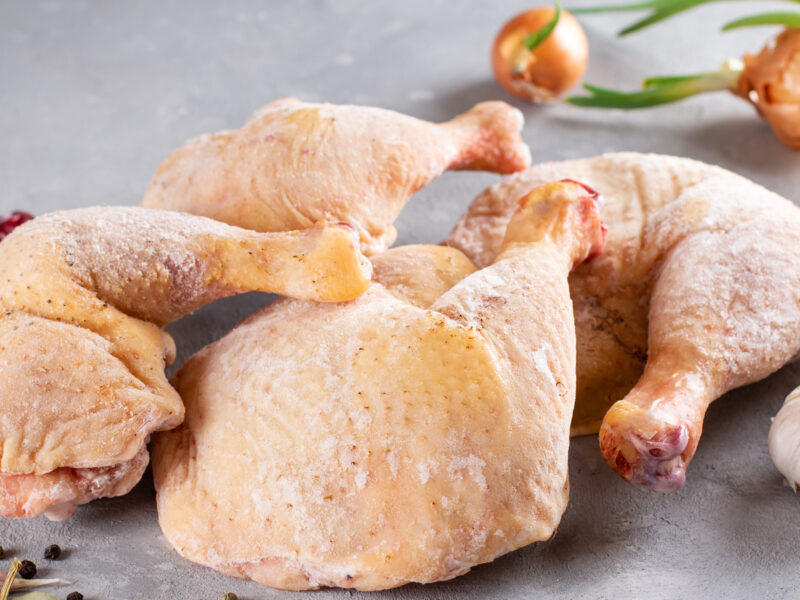Chicken is a beloved protein enjoyed by countless households worldwide. However, ensuring its safety and maintaining its freshness is paramount to preventing foodborne illnesses. Correctly storing chicken in the refrigerator is a pivotal aspect of this process, as it thwarts bacterial growth and spoilage. This article will delve into the best practices for storing both raw and cooked chicken in your fridge. By following these guidelines, you’ll be equipped to make informed decisions that ensure the safety and delectability of your chicken dishes.
Storing Raw Chicken
Storing raw chicken properly from the get-go is key. Here are actionable steps to ensure safe raw chicken storage in your refrigerator:
- Temperature Control: Maintain your refrigerator at 40°F (4°C) or lower to halt the proliferation of harmful bacteria responsible for foodborne illnesses.
- Packaging and Placement: If the raw chicken is in airtight packaging, keep it as is. If not, transfer it to a sealed container or resealable plastic bag to prevent juices from contaminating other foods. Place the chicken on a plate to catch any potential leaks.
- Preventing Cross-Contamination: Safeguard against cross-contamination by storing raw chicken on the bottom shelf, away from ready-to-eat items. This measure prevents bacterial transfer and safeguards other foods.
- Prompt Consumption: Raw chicken should not be stored in the refrigerator for over 1 to 2 days. Beyond this period, freezing is recommended to maintain the chicken’s quality and safety.
Storing Cooked Chicken
Efficient storage of cooked chicken is crucial for maintaining its flavor and safety:
- Swift Cooling: Allow cooked chicken to cool to room temperature before refrigerating to deter bacterial growth. Don’t let it sit at room temperature for more than 2 hours.
- Optimal Containers: Utilize airtight containers for storing cooked chicken, preventing moisture loss and exposure to air, which leads to spoilage. Use shallow containers for faster cooling.
- Smart Placement: Similar to raw chicken, position cooked chicken on a lower shelf to prevent any potential drips onto other foods. Keep it separate from raw meats to mitigate cross-contamination.
- Limited Refrigeration Time: Cooked chicken can be refrigerated for 3 to 4 days. For prolonged storage, consider freezing the leftovers.
Trusting Your Senses
While guidelines are vital, rely on your senses to assess the freshness of chicken:
- Smell: If the chicken emits an odd odor, discard it immediately, as it likely has spoiled.
- Appearance: Discoloration, sliminess, or unusual texture are indications that the chicken is no longer fit for consumption.
Conclusion
Proper chicken storage in your refrigerator is fundamental for safety and freshness. Complying with measures such as temperature control, separation, and prompt consumption ensures the prevention of harmful bacteria growth and foodborne illnesses. Regardless of whether you’re dealing with raw or cooked chicken, always trust your senses to gauge its condition. By following these strategies, you can relish your chicken dishes without compromising taste or safety.










